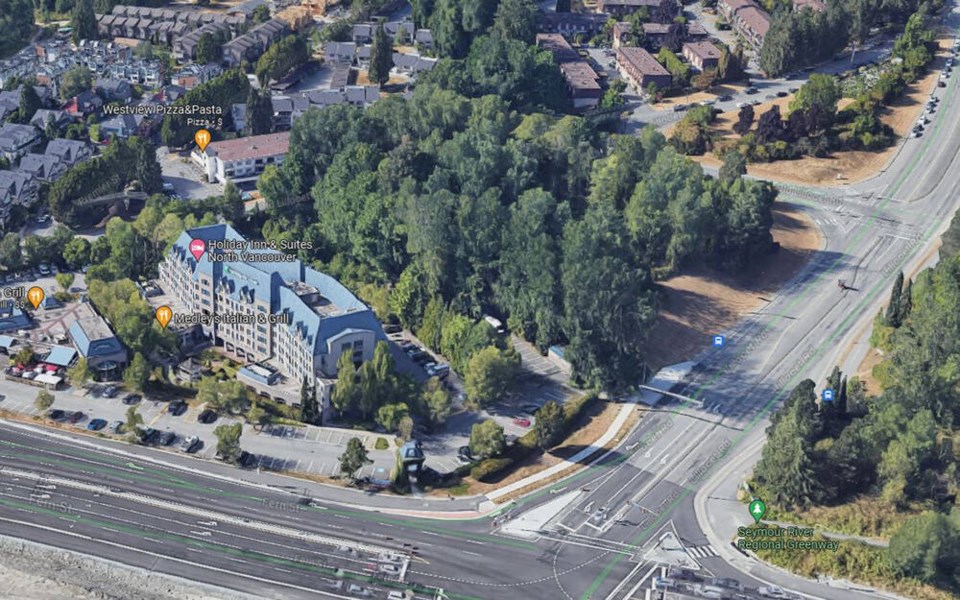District of North Vancouver council has agreed to put up to 180 affordable rental homes on municipal-owned land on Lillooet Road, just north of the Holiday Inn.
Council voted 6-1 Monday night to rezone the land, allowing the municipality to seek out grant funding from the province for construction of a six-storey building with 100 to 180 homes for people earning low to moderate incomes.
When the matter went to a public hearing last month, the majority of neighbours who spoke agreed there was a need for affordable housing, but they argued that with the already existing congestion on the only road out of the community, the district should build affordable rentals elsewhere.
Coun. Jim Hanson acknowledged the community concerns and added there are other demands on health, recreation and transportation facilities that need to be addressed, but in the context of the housing crisis, the rezoning should ultimately go ahead, he said.
“Frankly, there are infrastructure issues across the board and we must be sensitive to this when we talk about adding population to the North Shore,” he said. “However, in my view, the need for housing of this type in the district is so urgent that we must take advantage of this kind of opportunity.”
With one-bedroom apartments in North Van listing at $2,500 per month and three-bedrooms going for more than $5,000, Coun. Catherine Pope noted the opportunity to create homes accessible to working people.
“We know that affordable housing is desperately needed throughout the district and not just for those with a low income. Middle class families working full time cannot afford to rent here,” she said. “This project will ensure that those families and seniors on fixed incomes and workers can live there.”
Coun. Jordan Back praised the foresight of the previous council to identify district-owned lands that could be put up for affordable housing. And he added there were some at the public hearing who welcomed the proposal.
“There were people that do live in the area currently and feel lucky that they do and want other people to have that same sort of opportunity,” he said. “I’m really pleased that we’ve gotten to this point in the process where we’re starting to rezone some of these sites to put us … to the top of the list when those calls for funding come.”
Coun. Lisa Muri was the lone vote against the rezoning, although she stressed it was not because of the affordable housing component. Without a detailed proposal, there were too many unanswered questions in how the rezoning would impact the community, she added.
“The traffic in that area is already at its peak,” she said. “I’m against this site, and how it’s going to be accessed because this development needs to be successful too within the community for it to have a synergy and support in the community.”
Couns. Betty Forbes and Herman Mah both agreed there would be potential impacts on the existing community but came down in favour of using district land to achieve district housing goals.
Mayor Mike Little acknowledged both sides of the debate and said the district should look at re-opening Premier Street as an egress.
Although he specified he did not come to the decision lightly, he was firmly in support. If BC Housing opts against funding affordable housing there, Little expressed confidence that the district could find another partner.
“We’ve shown our hand that the District of North Vancouver council is willing to act and willing to take leadership on these spaces and put them forward for a significant social benefit, and I think that’s something we can all be proud of,” he said.
If approved for funding under BC Housing’s formula, 20 per cent of the units will be rented at a deep subsidy, reserved for people on disability or income assistance. Half of the units will have their rents capped at 30 per cent of the household income for families on middle-incomes. And the remaining 30 per cent will be offered at below-market rates for people with a household incomes of roughly $82,000 to $128,000.




